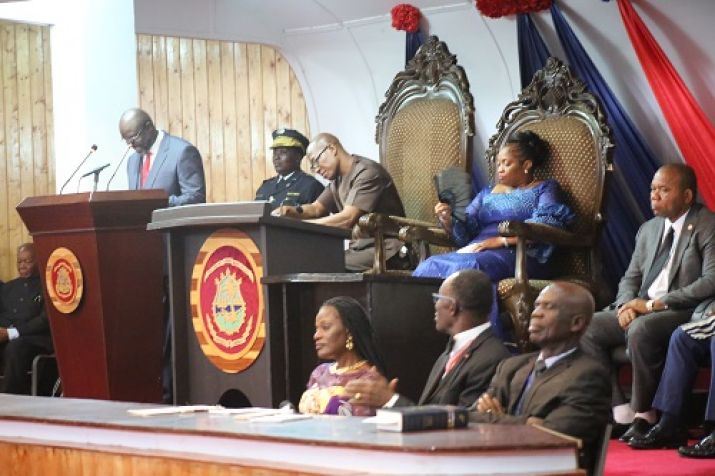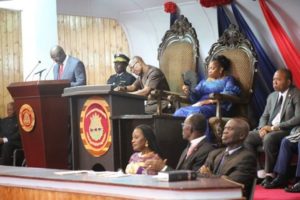
Following President George Weah’s first Annual Message 29 January 2018, the post- speech discussions amongst Liberians, home and abroad, was dominated by his desire to change the citizenship clause of the Liberian Constitution. Article 27 of the Constitution bars people of non-negro descent from being citizens of Liberia.


In the President’s own words,
“I believe that this is an anomaly that should not have found its way into the 1986 Constitution – Chapter 4, Article 27. I therefore strongly recommend and propose, respectfully, that consideration should be given to removing it by appropriate measures provided for in our laws for amending the Constitution [Chapter 12].”
The President’s justifications are that it is racist and primarily discourages foreign investment, and by extension, development. While the arguments put forth may sound compelling, it misses the historical roots of the reason. Eventhough the President acknowledges the framers intent at the time, and that is to provide a place of refuge of descendants of the Black Race amid colonial slavery, his diagnosis of the issue is not critical enough.
Slavery was not the only reason. Economic marginalisation was another. As a matter of fact, the slavery led to economic oppression which in turn contributed to the poverty in black communities globally. The question is, are Liberians economically freed today? Who are the dominant players in our economy? And would not opening up the citizenship exacerbate the already economically enslaved people as those with the wherewithal to invest will buy up prime lands and assets? If not, what mechanisms would be put in place to ensure equity and equal access of the masses to the wealth of the nation?
It is the opinion of this writer that before Article 27 is put to any national referandum, a thorough consideration of the issue, in the context of economic emancipation, should be addressed. To start that process, I recommend a must read of the Paper:
‘Haiti, Liberia and Ethiopia (1914–1945): Black Sovereignty in a White Worldhttp://eagleeyes1847.com/wp-content/uploads/2018/02/Younis-ISRU-Paper-Haiti-Liberia-Ethiopia.pdf‘ by all Liberians, particularly Lawmakers, Ministers and Other Officials. After that, we can come back to this debate. I will like to leave Liberians with a taste of what the writer argues:
“Haiti, Liberia and Ethiopia’s interwar experiences suggest how race emerged not as an unfortunate excrescence of international society, but as constitutive of global order and its inherent stratifications.”
The question we Liberians, and especially the President needs to ask himself is, has the constitutive global order and its inherent stratifications changed?
